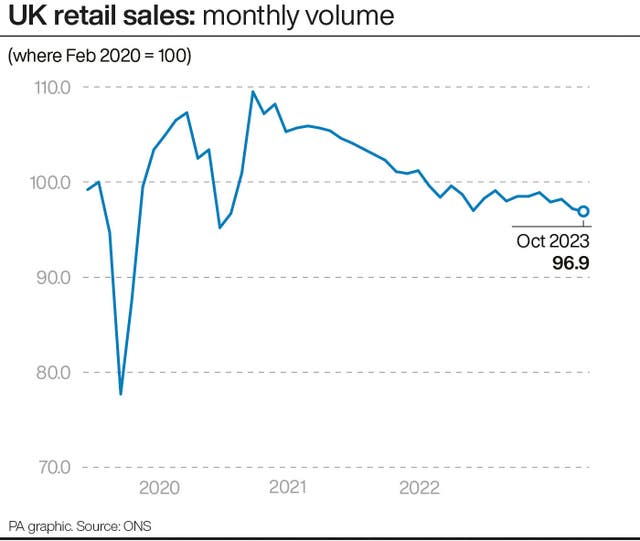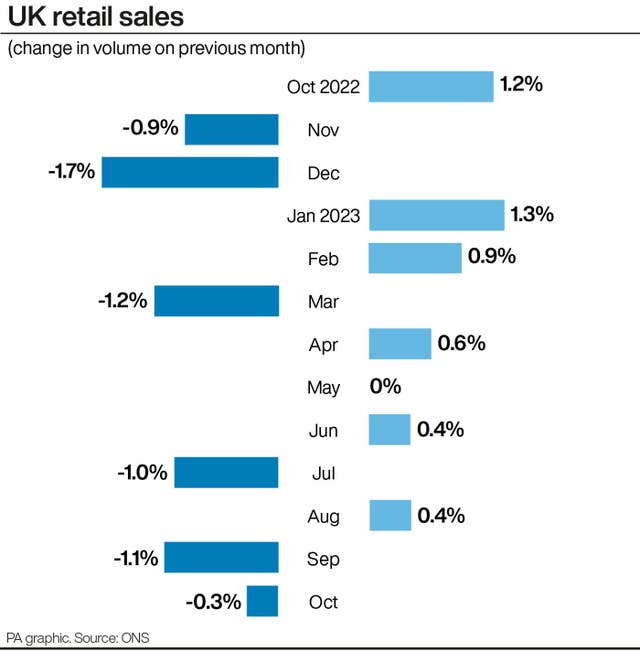Drop in retail sales pushes sector to worst month since the pandemic
Retail sales volumes fell last month after a small rise had been predicted, the Office for National Statistics said.

The UK’s retailers saw their sales levels unexpectedly drop last month, pushing them to the lowest since February 2021 when there were still Covid-19 restrictions in place, official data suggested.
The Office for National Statistics (ONS) said that retail sales volumes dipped 0.3% in October. The statisticians also revised September’s fall from 0.9% to 1.1%.
Food shops said their sales had fallen 0.3% during the month, a worse result than September, but non-food stores saw a decline of 0.2% in October, after sales dropped 2.1% the month before.
Retailers blamed the cost of living, reduced footfall and wet weather in the second half of October.

“After rebounding in September, fuel sales dipped with increasing prices discouraging customers, while food sales also dropped as consumers prioritised essential goods.
“It was another poor month for household goods and clothes stores with these retailers reporting that cost-of-living pressures, reduced footfall and poor weather hit them hard.
“However, it was a better month for online retailers, the only main sector to report growth in October.”

It means that in October this year people were paying 16.9% more to buy 3.1% less than they did in February 2020, laying bare the impact of the cost-of-living crisis.
Earlier this month, a survey from the ONS showed that the rising cost of living has caused around two-thirds (67%) of adults in Great Britain to spend less on non-essentials.
Aled Patchett, head of retail and consumer goods at Lloyds Bank, said: “Another dip in sales suggests rising household costs remain at the forefront of consumers’ minds, despite headline inflation easing in recent months.
“The rising cost of living remains a drag on consumers’ discretionary incomes. Households continue to prioritise essential spending, particularly as falling winter temperatures push energy use up and high levels of inflation prevent material downturns in the prices of goods.
“Retailers will now be looking to strike the balance of getting staffing levels right while also being mindful that an early sales offering might not get the tills ringing as loudly as they’d like, as consumers navigate financial challenges elsewhere.”





